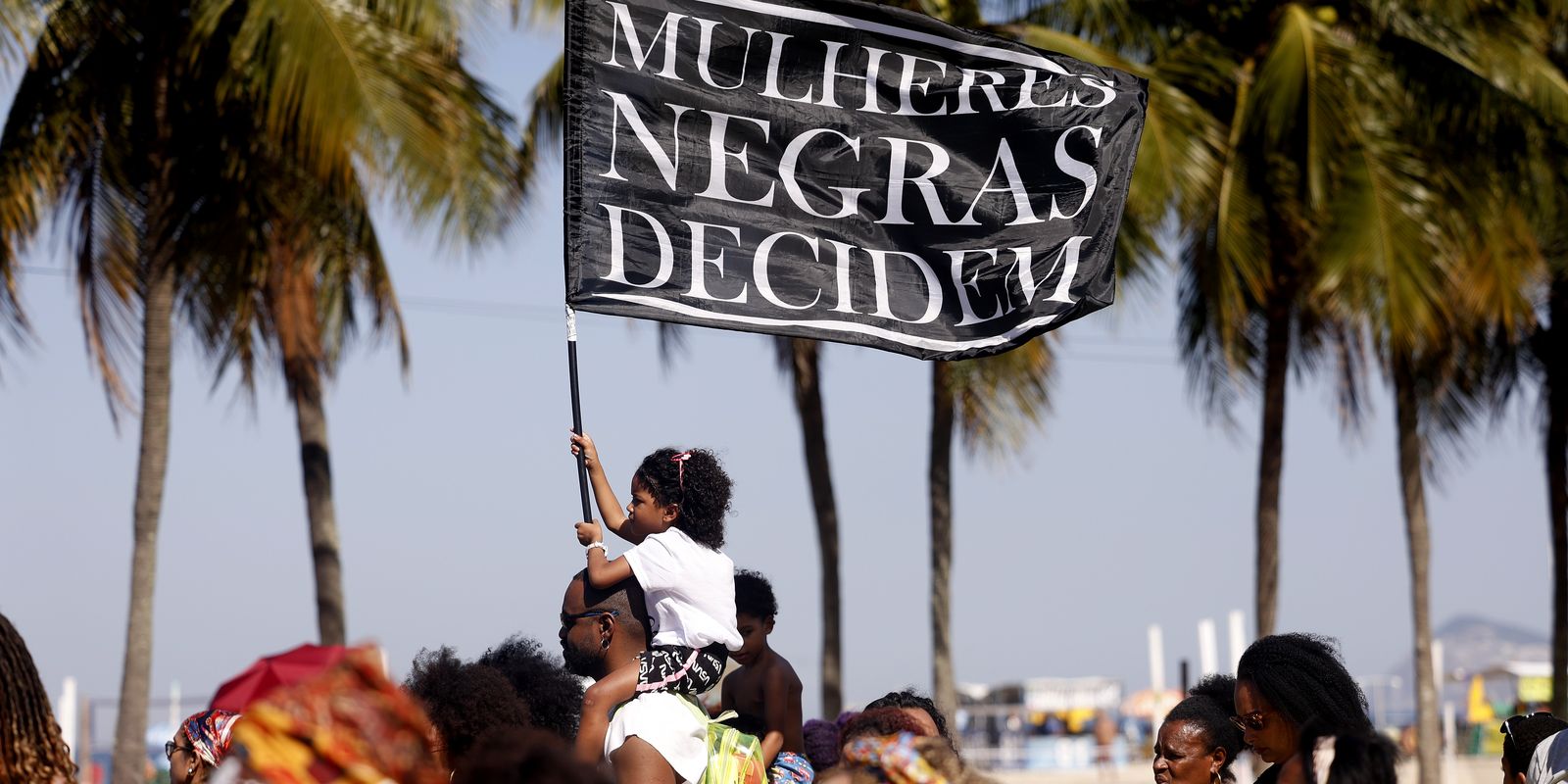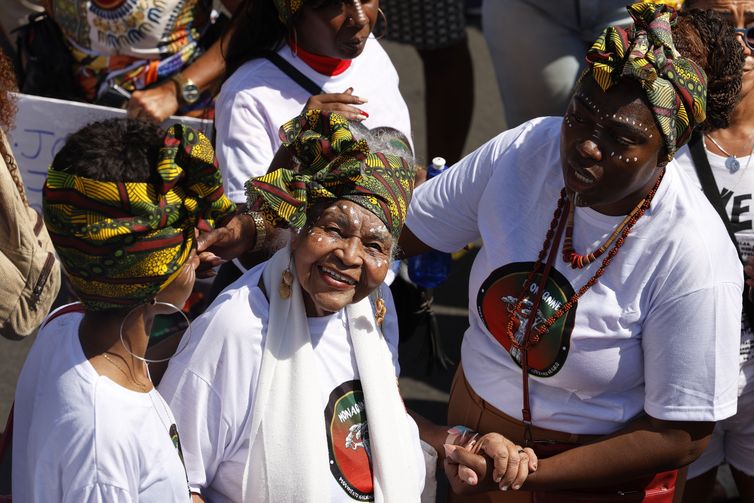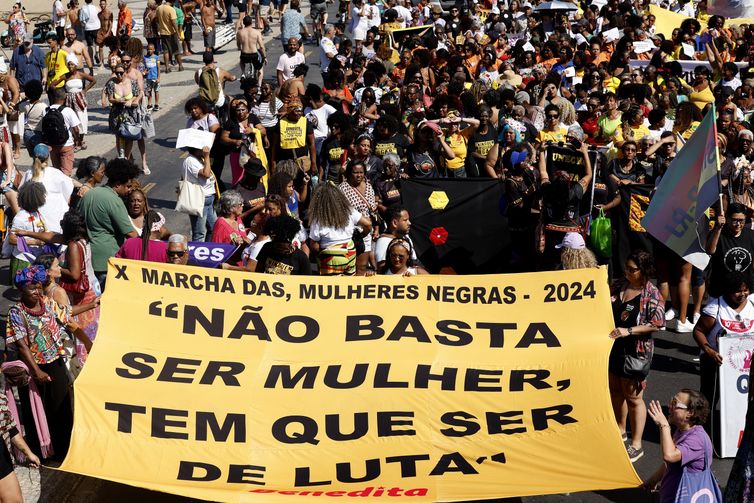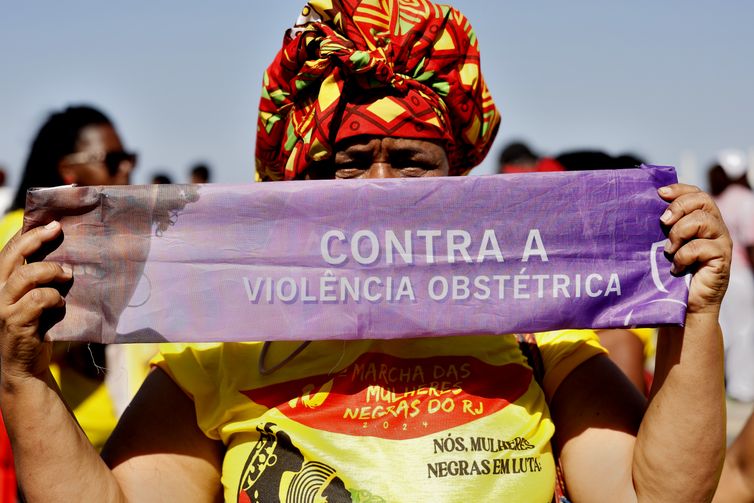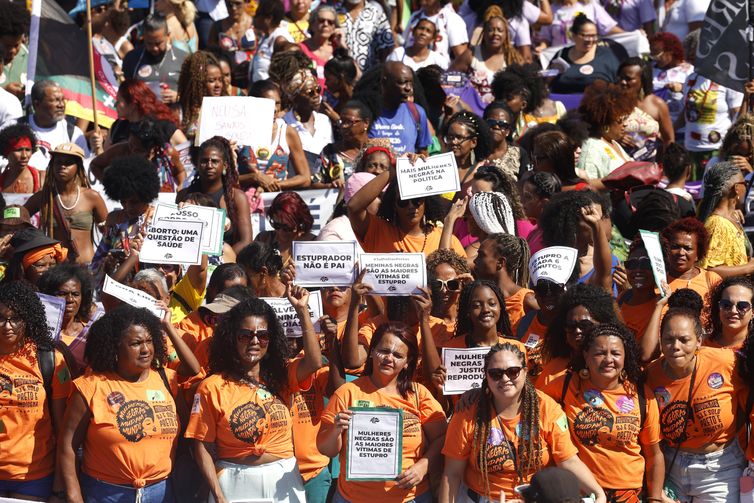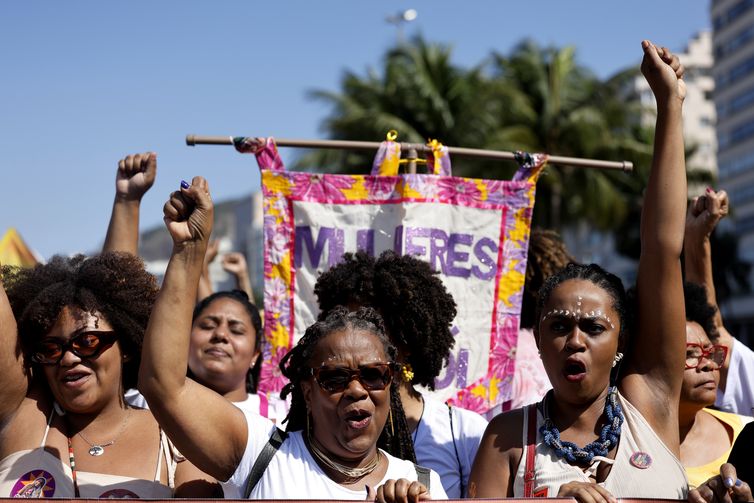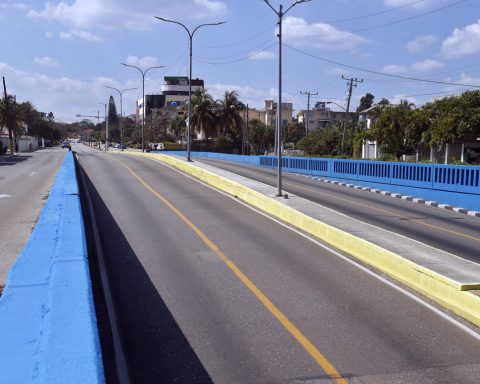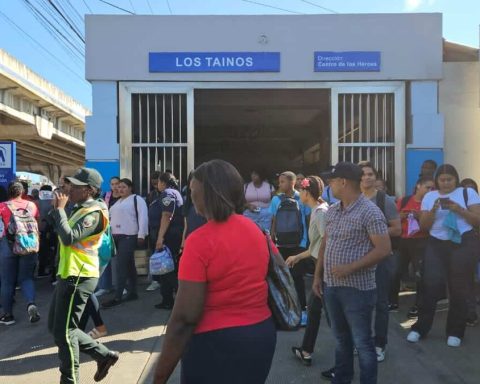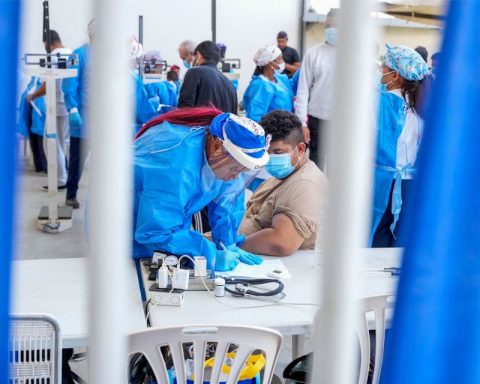At 92 years old, former domestic worker Nair Jane de Castro Lima braved the winter sun this Sunday (28) on the Copacabana beachfront, in the south of Rio de Janeiro, to participate in the 10th edition of the Black Women’s March in the state. She, who was a union leader and defender of the rights of domestic workers, sees her participation in the act as a mix of resistance and an example for new generations.
“It is resistance in the fight for black rights, the fight that we all seek, the equality that we do not have. Young people have to learn to walk, to have courage,” he told Brazil Agency.
The demonstration had the power to unite generations. A few dozen meters away from the 92-year-old activist, parents and guardians with children and teenagers were taking part in the march. One of them was Luciane Costa, accompanied by her granddaughters, Manuela, just three years old, and Mirela, six.
For the grandmother, it is important that the two children, from an early age, attend environments of collective protest against racism and for a good life. “So that they grow up knowing that our existence is important for a more just, egalitarian world, that we, women, are the womb of this world and we need to be respected”, she explained.
The march organized by the State Forum of Black Women brought together thousands of people and closes the week of mobilization for the International Day of Black Latin American and Caribbean Women, celebrated on July 25, in addition to Black July, a collective agenda of demonstrations and celebrations throughout the month.
One of the organizers, Clatia Vieira, points out that the walk represents black women from favelas, terreiros, communities and outskirts, from 52 of the 92 municipalities in Rio de Janeiro.
“We are also marching for housing, for an education designed by us and for a life without violence for black women,” lists the organizer.
“Racism is bad for the whole society, racism kills, racism makes people sick. When we respect black women, we are respecting the whole society,” she declares.
Structural racism
Statistics prove that black women face more difficult challenges than other segments of Brazilian society.
In the economy, the main ones are victims of unemployment. In 2023, black women aged 18 to 29 had an unemployment rate three times higher than that of white men in Brazil, according to data from the Brazilian Institute of Geography and Statistics (IBGE) analyzed by the organization Ação Educativa. In addition, black female youth have an income 47% lower than the national average.
In the context of security, the Brazilian Public Security Yearbookreleased on the 18th, reveals that 63.6% of feminicide victims were black women in 2023. In the previous year, it was 61.1%.
In relation to sexual violence, between 2012 and 2023, also according to the Yearbook, the proportion of black women victims jumped from 56.4% to 63.2%.
Against impunity and PL 1904
Clatia Vieira says that the act is also a protest for two specific issues. One of them is the court decisions that absolve security agents involved in the deaths of black people.
The organizer cites the example of young John Peter14 years old, killed with a rifle shot in the back, inside the home of relatives, on May 18, 2020, during a police operation in the Salgueiro community, in São Gonçalo, metropolitan region of Rio de Janeiro. The Court, after analyzing the evidence and statements, understood that the agents acted in self-defense.
Another topic is Bill 1904/24, which is being processed in the Chamber of Deputies, and provides that abortion performed after 22 weeks of gestation, in any situation, will be considered homicide, including in the case of pregnancy resulting from rape.
Majority of the population
The executive director of the civil society organization Amnesty International Brazil, Jurema Werneck, describes the march as “several cries, several demands and statements”.
“The screams denounce the injustice that affects black women and their families,” she said.
She also highlights the importance of taking the voices of black women to the streets.
“We are the main population segment in Brazil, we are the majority in Brazil and we are neglected with human rights violations all the time.”
Brazil has 60.6 million black women, 11.30 million of whom are black and 49.3 million are brown, which corresponds to 28.3% of the population, according to the 2022 Census (IBGE).
“We want black boys alive, we want black women alive, we want a Brazil without racism,” said Werneck.
Obstetric racism
Throughout the march, banners and posters identifying groups and demands were visible. One of them was to combat obstetric racism and black maternal mortality. “Black women are the ones who die the most during pregnancy, childbirth and the postpartum period [período de seis a oito semanas após o parto]”, points out Gabriella Santoro, president of the Doulas Association of the State of Rio de Janeiro.
Data from the Ministry of Health show that, in 2022, the maternal death rate for black women was 100.38 deaths for every 100,000 live births. In the case of brown women, it was 50.36. Among white women, the rate dropped to 46.56.
Gabriella Santoro explains that part of the racism during childbirth is based on prejudiced ideas.
“Black women receive less pain relief during childbirth because there is a wrong and prejudiced preconceived idea that black women can withstand more pain than white women, so, for this reason, they are denied analgesia during childbirth,” she explains.
Quilombolas
Representatives of quilombola communities circulated among the protesters. One of them was Adriana Silva, from the National Quilombo Movement Black November. For her, even more so in the scenario in which the IBGE, for the first time, brings data detailed information about the quilombola populationpresence at the march was also a question of visibility.
“The importance of the movements participating is to have visibility. There is a whole history and we are resilient. It is important that society comes to see and recognize that it is necessary to create equality between black and non-black people,” he said.
Ten years
The organizer of the Black Women’s March, Clatia Vieira, considers that the 10th edition of the march is “a summary” of the other nine editions. She hopes that, in ten years, there will be progress on racial issues in the country, so that the event can take place in an atmosphere of less protest and more celebration.
“So far, we have marched to protest and denounce. We hope that in ten years’ time there will be a joyful meeting, that we can look at the Legislative Branch and see more women. In ten years’ time we want a black woman president, in 10 years’ time we want to see black women on an equal footing with this whiteness,” she hoped.
International Day
The International Day of Afro-Latin American and Caribbean Women, on July 25, was created by the United Nations (UN), during the 1st Meeting of Afro-Latin American and Afro-Caribbean Women, in Santo Domingo, Dominican Republic, in 1992. In Brazil, the date is also a tribute to Tereza de Benguela, known as Rainha Tereza, who lived in the 18th century, in the Guaporé Valley, in Mato Grosso, and led the Quilombo de Quariterê.
